Aussie bio-researcher’s friendship with Chinese corona scientist
A scientist employed by China’s People’s Liberation Army, who has been genetically modifying coronaviruses and studying transmission from animals to humans, has had a longstanding professional relationship with the director of Australia’s top bio-containment facility.

NSW Coronavirus News
Don't miss out on the headlines from NSW Coronavirus News. Followed categories will be added to My News.
- Markson exposes details of cover-up on Fox News
- Left out on China’s lies
- COVID-19 sets a stage for biological warfare
A scientist employed by China’s People’s Liberation Army, who has been genetically modifying coronaviruses and studying transmission from animals to humans, has had a longstanding professional relationship with the director of Australia’s top bio-containment facility.
The Daily Telegraph can reveal the director of Australia’s Animal Health Laboratory Dr Trevor Drew had a working relationship for at least seven years with a senior scientist employed by the PLA’s Academy of Military Medical Sciences, Dr Tu Changchun.
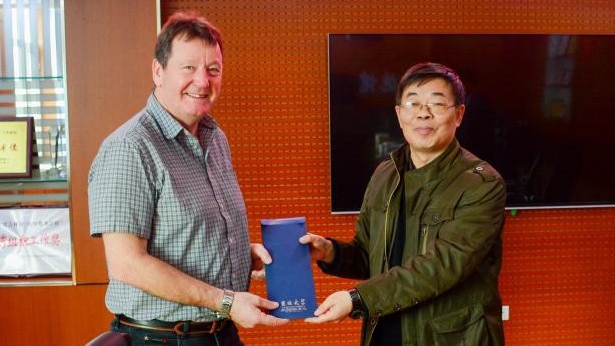
The Daily Telegraph has obtained photographs of Dr Drew’s visits to meet with Dr Tu in 2009 and 2016. One photo shows him smiling and holding Dr Tu up in the air during this trip.
Their relationship was forged through the Jilin University, where Dr Drew was a visiting professor of virology from 2009 to 2014 and, maintaining a relationship, visited again in 2016 while on a trip to China to lead “projects to improve China’s capacity for the prevention, detection and control of rabies and Swine Fever”.
Jilin University, in the city of Changchun in China’s northeast province, has secret-level security credentials, “allowing it to participate in research and production for classified weapons and defence technology projects”, according to Australian security analysts who have classified it “very high risk” for its high level of defence research.
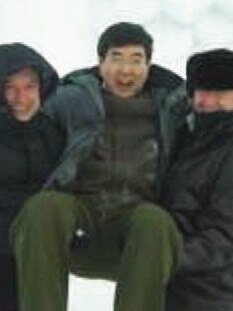
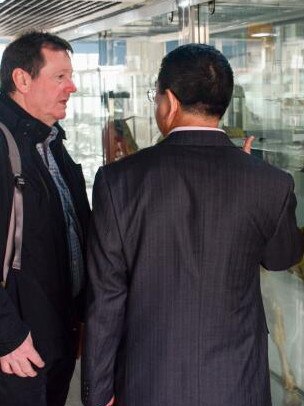
The revelation comes amid calls from members of the Morrison government for a federal oversight body to ensure there is no foreign interference in the research sector, and to give checks and balances to foreign partnerships.
As well as being a researcher at the Institute of Military Veterinary Medicine of the Chinese PLA’s Academy of Military Medical Sciences, Tu Changchun is also a professor at Jilin University, according to both his biography and a now-deleted press-release on the university’s website.
GENETIC ENGINEERING
In his biography, Dt Tu’s research direction is listed as “virus disease” and a description of his scientific research projects centres on genetic engineering of viruses.
At Dr Tu’s page at the Jilin University website, it speaks about his work genetically modifying coronaviruses and other infectious diseases to see if they are transmissible to humans.
“Research on the source of SARS coronavirus transmission: by means of gene amplification, serological detection and virus isolation, the detection, isolation and identification of coronavirus in wild animals and domestic animals and poultry, so as to find the animal origin of SARS virus and study the virus the origin,” an excerpt from his page at Jilin University states.
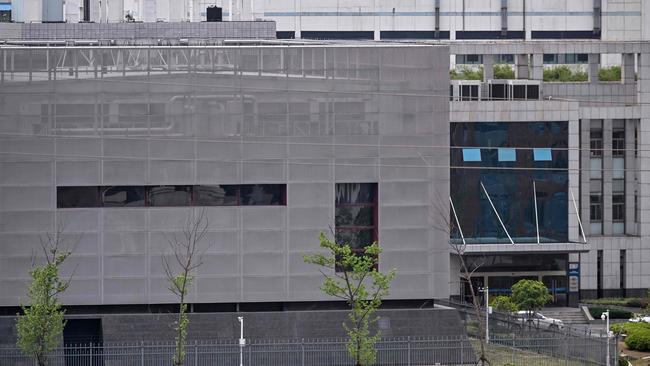
“Then, through animal inoculation tests, SARS virus susceptible animals are screened to study the animal-human transmission route.”
Along with many other Chinese researchers in this field, Tu Changchun’s research affiliated with the Academy of Military Medical Sciences often involves finding new diseases that come from animals.
MILITARY RESEARCH
The Academy of Military Sciences is the highest-level research institute of the People’s Liberation Army, according to PLA Daily.
The Australian Strategic Policy Institute’s China’s defence university tracker states that Jilin University works closely with China’s nuclear weapons complex and hosts at least two defence research labs.
They are located in its College of Computer Science and Technology and in the College of Chemistry.
“Its Key Laboratory of Attack and Defence Simulation Technology for Naval Warfare, Ministry of Education is involved in cybersecurity research for the Navy,” the ASPI project states.
“The lab’s academic committee is headed by a computer scientist from China Aerospace Science and Technology Corporation, a leading state-owned missile manufacturer.”
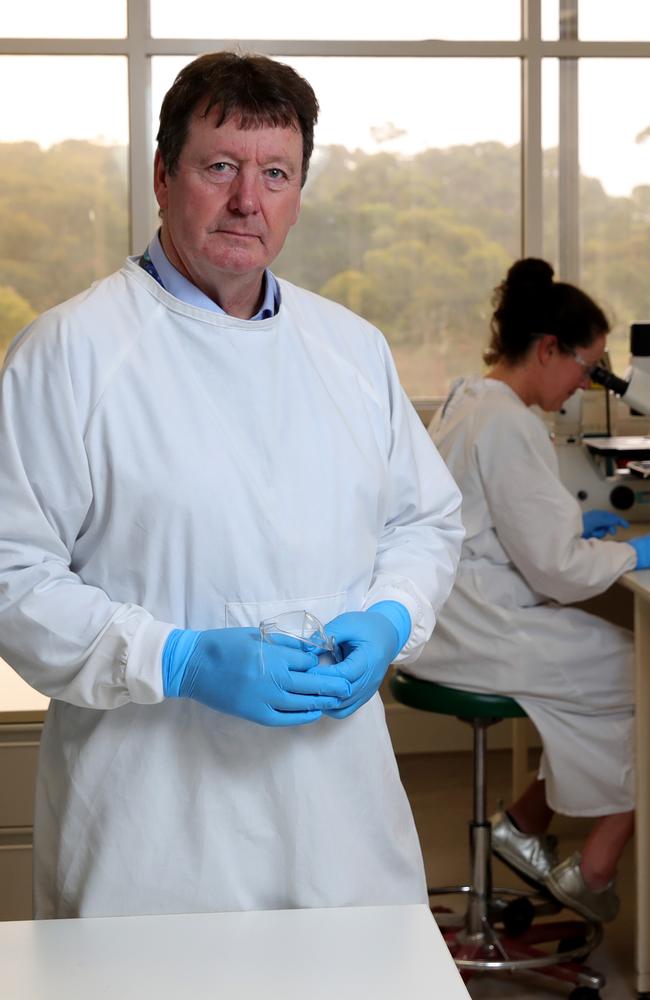
Dr Tu is also listed on the Wuhan Institute of Virology’s website as sitting on the scientific advisory committee of its Centre for Emerging Infectious Diseases — the institute at the centre of the global probe into the origins of the coronavirus.
The Daily Telegraph has previously revealed that two scientists from the Wuhan Institute of Virology, Shi Zhengli and Peng Zhou, who are a focus of the Five Eyes intelligence probe into the origins of COVID-19, have worked at the CSIRO in Australia where they conducted research on live bats.
This Wuhan Institute of Virology committee on which Dr Tu sits is headed by Linfa Wang, according to the website.
Dr Linfa Wang, while an Honorary Professor of the Wuhan Institute of Virology between 2005 and 2011, also worked in the CSIRO Office of the Chief Executive Science Leader in Virology between 2008 and 2011.
OVERSIGHT DEMANDS
There is no suggestion Dr Drew has engaged in any untoward or unethical research through his relationship with Dr Tu. Questions for him were answered by the CSIRO.
A spokesman for the CSIRO said Dr Drew did not receive a salary or any financial benefit from Jilin University and has never studied bat diseases.
The CSIRO defended its links with other research institutes.
“To enable collaboration, CSIRO employees are often members of affiliate research institutes, committees and other bodies both in Australia and overseas. When entering into any such arrangement, CSIRO staff are bound by CSIRO’s code of conduct and related policies and procedures,” it said.
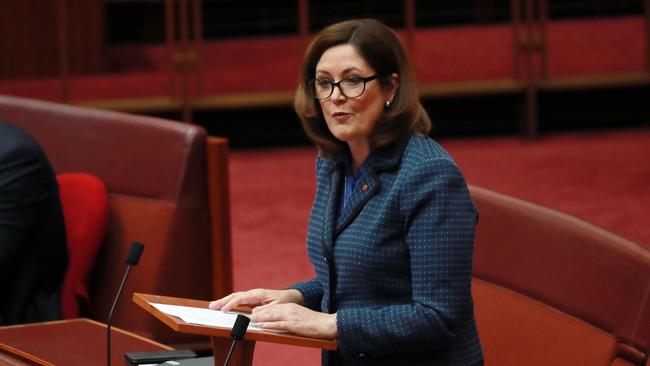
Liberal MPs including Matt Canavan, Sarah Henderson and Jim Molan say partnerships between Australia and Chinese universities show an oversight body is needed to maintain integrity in the research sector which is among those vulnerable to foreign influence.
The Australian Strategic Policy Institute lists Jilin University as “very high risk for its high level of defence research and links to China’s nuclear weapons program”.
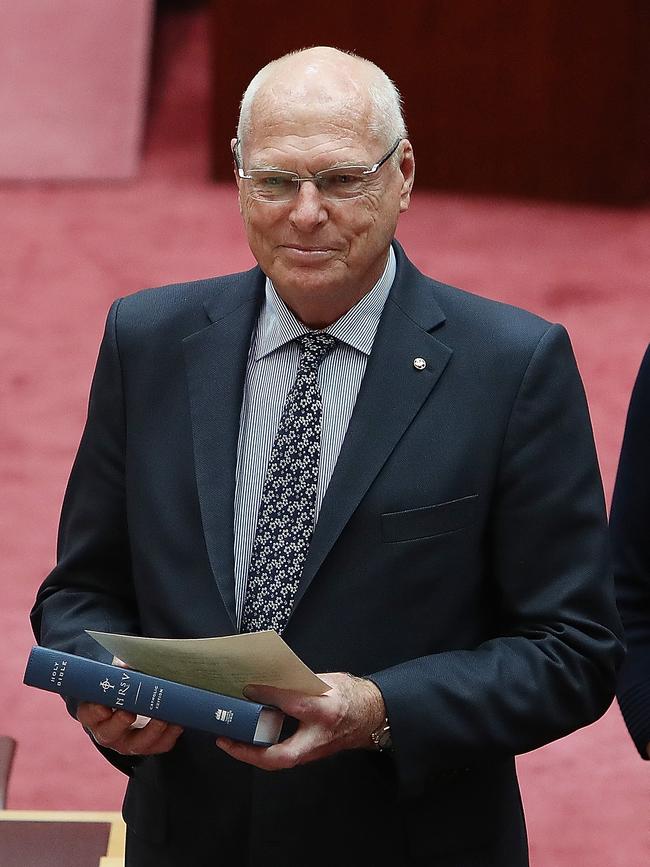
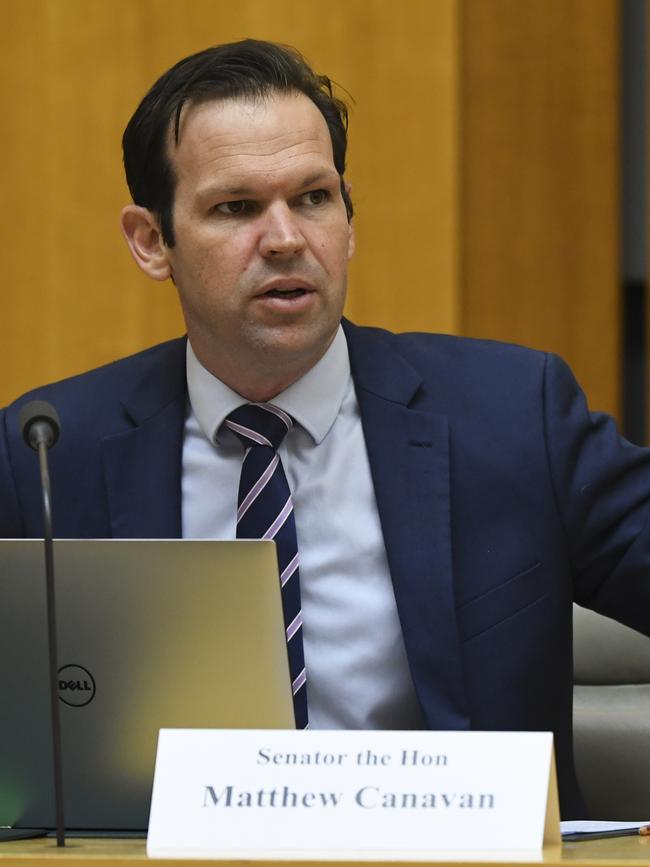
Its project states Jilin University is directly under the Ministry of Education and came under the joint supervision of the ministry and defence industry agency, SASTIND, in 2016.
ASPI’s executive director Peter Jennings said Chinese President Xi Jinping has brought China’s university sector closer to the PLA and intelligence.
“We need to now look much more carefully at those partnerships with Chinese universities to make sure there are no military implications and in particular areas of research that Australia could be doing that could benefit the PLA,” he said.
The CSIRO has refused to publish details of its Chinese partnerships.
WHO IS TREVOR DREW?
By Ashleigh Gleeson
Professor Trevor Drew is one of the most respected animal disease experts in the world.
As director of the Australian Centre for Disease Preparedness he oversees efforts to brings together human and animal health, disease protection and biosecurity measures, to better protect Australia from highly infectious diseases of animals as well as zoonotic diseases.
Before Dr Drew joined the CSIRO in 2018, he was the lead scientist for the Animal and Plant Health Agency in the UK with responsibility for managing the UK surveillance program for exotic viral diseases of livestock.
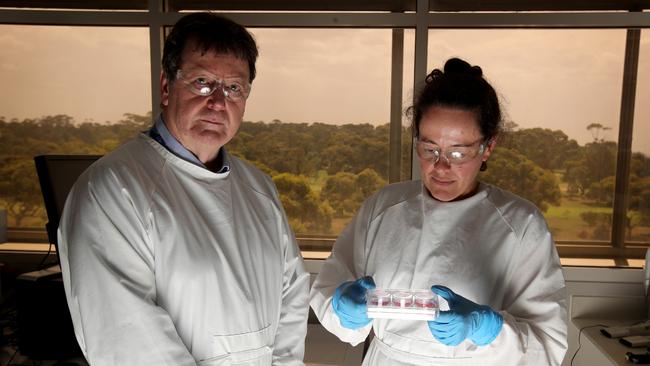
The Cornwall-born scientist was awarded an OBE in 2015 and the Gold Medal of the World Organisation of Animal Health in 2019 for his services to international veterinary science, publishing over 140 research papers during his distinguished career.
He also has an extensive record of overseas work, including extended secondments on behalf of overseas aid projects in Ethiopia, Kenya, Bangladesh and Nepal.
He is a specialist in viral diseases of pigs and has published over 140 peer-reviewed research papers.
Prof Drew is also a regular contributor to the work of the World Organisation for Animal Health (OIE), where he has held a position as Reference Expert for a number of viral diseases.
COMMENT: UNFETTERED RESEARCH DEALS RISKY
By Sharri Markson
A federal oversight agency should be set up to ensure there is full transparency and no foreign interference in the science and research sector, Liberal MPs say.
Morrison Government Senators Matt Canavan, Sarah Henderson and Jim Molan are leading the calls for a new independent body to oversee the extensive overseas collaborations taking place throughout the research sector.
Senator Canavan said research done in Australia should go towards furthering the national interest and an oversight would help achieve that goal.
“There are credible claims that China has sought to abuse our open and free academic environment to further their strategic goals,” he said.
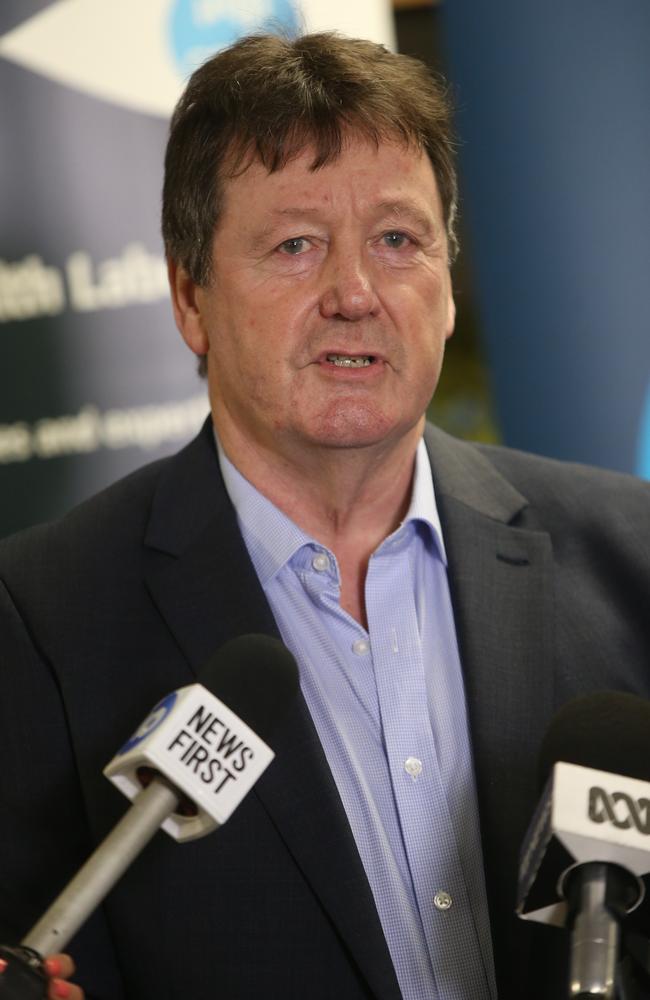
“There is a national interest in protecting the security of our high-level research.”
Senator Henderson strongly supports a foreign research oversight agency to provide transparent and independent regulation of foreign research.
“Our government has long raised deep concerns that foreign research projects at Australian universities have been used by some other countries to exert interference or influence contrary to our national interest and national security.”
Senator Henderson said the health sciences and research sector is a key target of foreign interference activities.
“While the CSIRO has confirmed it has no current joint research programs with the Wuhan Institute for Virology, it is in the national interest that the CSIRO makes public all such arrangements involving the embedding of foreign scientists in its facilities.”
Senator Molan said crucial research must be part of an overall national strategy.
“It cannot be left up to the whims of a university or an institution,” he said.
